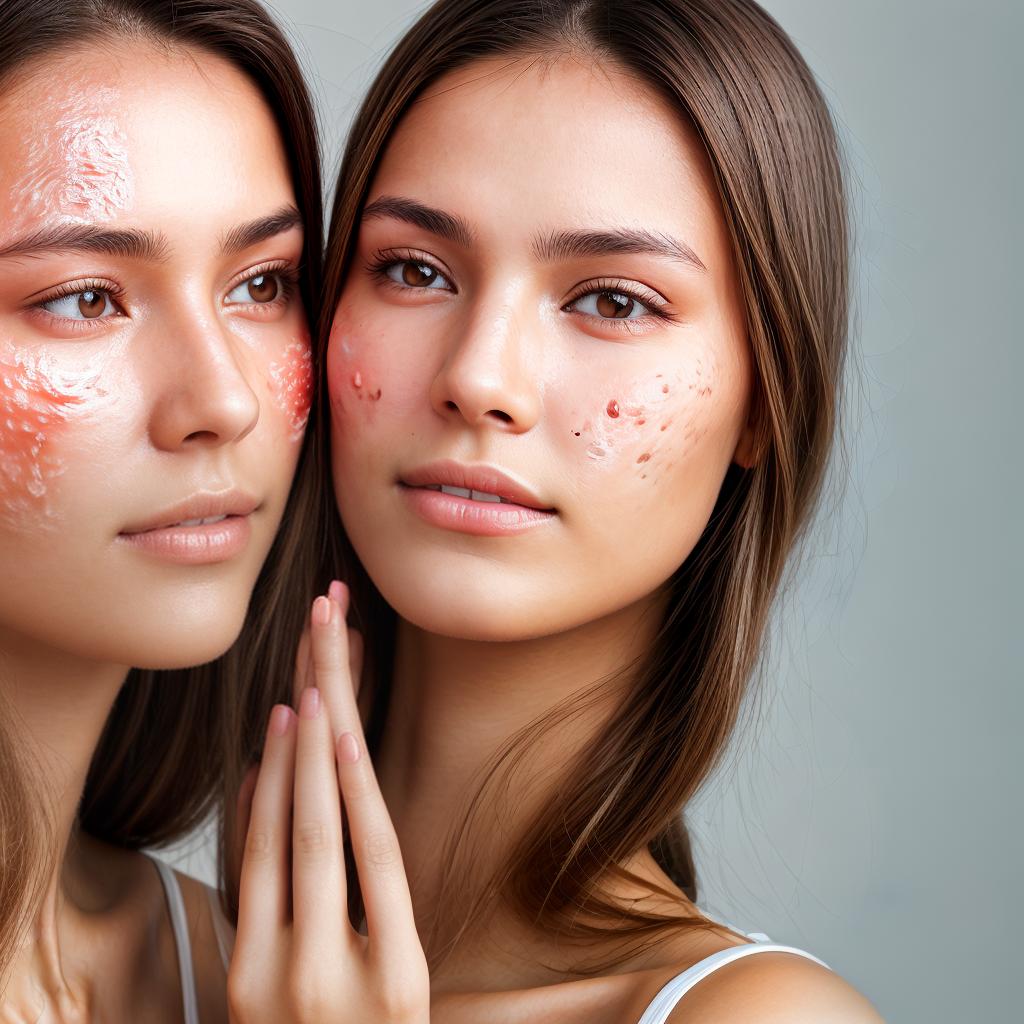Acne is a common skin condition that affects people of all ages and backgrounds. Whether you’re a teenager going through puberty or an adult dealing with persistent breakouts, acne can be frustrating and impact your self-esteem. However, there are effective ways to manage and reduce acne breakouts, leading to clear and healthy skin. In this comprehensive guide, we’ll explore the causes of acne, practical tips for prevention and treatment, and answer some frequently asked questions about this skin condition.
Understanding Acne: Causes and Types
Before diving into tips for dealing with acne, it’s essential to understand what causes it and the different types of acne. Acne typically develops when hair follicles become clogged with oil and dead skin cells. Here are the primary causes and types of acne:
1. Hormonal Fluctuations:
- Hormonal changes during puberty, pregnancy, and menstrual cycles can lead to increased oil production, making the skin more prone to acne.
2. Excess Oil Production:
- Overactive oil glands can clog pores, creating an ideal environment for acne-causing bacteria to thrive.
3. Dead Skin Cells:
- When dead skin cells don’t shed properly, they can mix with oil and form plugs in hair follicles, leading to acne.
4. Bacteria:
- Propionibacterium acnes (P. acnes) is a type of bacteria that can multiply within clogged pores, triggering inflammation and acne breakouts.
5. Types of Acne:
- Acne can manifest in various forms, including whiteheads, blackheads, papules, pustules, nodules, and cysts, each with its own severity level.
Tips for Dealing with Acne
Now that you understand the basics of acne, let’s explore some practical tips to help you achieve clear and healthy skin:
1. Establish a Consistent Skincare Routine:
- Cleanse your face twice daily with a gentle, pH-balanced cleanser to remove dirt, oil, and makeup.
- Use non-comedogenic (won’t clog pores) moisturizers and sunscreen daily.

2. Avoid Harsh Scrubs:
- Scrubbing your face vigorously can irritate the skin and worsen acne. Opt for gentle exfoliants with salicylic acid or glycolic acid to help unclog pores.
3. Hands Off:
- Avoid touching your face, as your hands can transfer bacteria and irritate the skin. Picking or squeezing pimples can lead to scarring.
4. Diet Matters:
- Consume a balanced diet rich in fruits, vegetables, and whole grains. Limit dairy, high-sugar foods, and greasy or fried foods, as they may worsen acne for some individuals.
5. Hydrate and Stay Stress-Free:
- Drink plenty of water to keep your skin hydrated. Stress can exacerbate acne, so practice stress-reduction techniques such as yoga, meditation, or deep breathing exercises.
6. Choose the Right Products:
- Look for skincare products containing acne-fighting ingredients like benzoyl peroxide, salicylic acid, or alpha hydroxy acids. Consult a dermatologist for personalized product recommendations.
7. Prescription Medications:
- If over-the-counter treatments aren’t effective, consult a dermatologist who may prescribe topical or oral medications like retinoids, antibiotics, or hormonal therapies.
8. Professional Treatments:
- In severe cases, dermatologists can perform procedures like chemical peels, laser therapy, or extraction of large cysts to manage acne.
9. Be Patient:
- Achieving clear skin takes time. Avoid expecting instant results and stick to your skincare routine consistently.
10. Regularly Change Pillowcases and Bedding:
- Bacteria and oil from your face can transfer onto your bedding. Changing pillowcases and sheets regularly can help prevent breakouts.
Frequently Asked Questions (FAQs)
Q1. Can I prevent acne altogether?
- While it may not be possible to prevent acne entirely, adopting a good skincare routine, maintaining a healthy diet, and managing stress can significantly reduce the frequency and severity of breakouts.
Q2. Are all acne products suitable for every skin type?
- No, different skin types require different products. Consult with a dermatologist to determine the best products and treatments for your specific skin type and acne condition.
Q3. Is it safe to pop pimples?
- It’s generally not recommended to pop pimples, as it can lead to scarring, infection, and worsened inflammation. If you must, consult a dermatologist for safe extraction.
Q4. Can I wear makeup if I have acne?
- Yes, you can wear makeup, but choose non-comedogenic and oil-free products. Make sure to remove makeup thoroughly at the end of the day to prevent clogged pores.
Q5. How long does it take to see results from acne treatments?
- The timeline for results varies depending on the treatment and the individual’s response. Some may see improvement in a few weeks, while others may take several months. Patience is key.
Dealing with acne can be challenging, but with the right knowledge and a consistent skincare routine, you can achieve clear and healthy skin. Remember that what works for one person may not work for another, so it’s essential to consult with a dermatologist for personalized guidance. By following these tips and staying patient, you can regain your confidence and enjoy the benefits of clearer, more radiant skin. Say goodbye to acne and hello to a more confident you!
